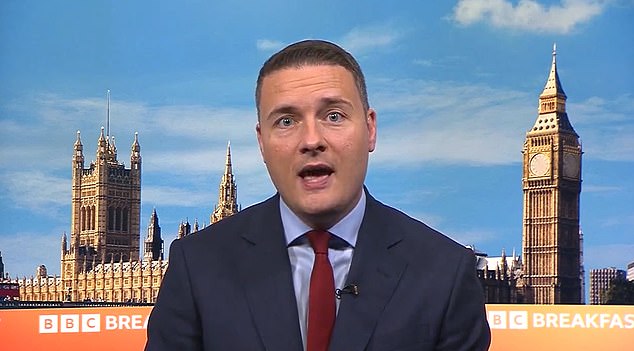A shocking report by health watchdog the Care Quality Commission (CQC) has found that some hospitals have not been visited for a decade – and now our search tool lets you find when your local provider was last reviewed.
The devastating interim report concluded that the regulator, which has a duty to inspect health and social care providers in England, had “significant internal failings” affecting its ability to identify poor performance.
This morning, Health Secretary Wes Streeting went so far as to say that people should not trust the ratings published by the CQC, adding that they are “not fit for purpose” and need “radical reform”.
He told Radio 4’s Today programme: “I would take those ratings today with a pinch of salt.”
“I want to make sure we ask the CQC to urgently re-qualify its ratings by providing background information on how they were determined, so people can make more informed decisions.”
Health Secretary Wes Streeting said he was “appalled” by the state of the CQC and warned people not to rely on its ratings.
Mr Streeting told ITV’s Good Morning Britain he was “horrified” to be faced with a crisis at the heart of the CQC just three weeks after taking up the role of Health Secretary.
He said: ‘(Inspectors) are going into care homes with no experience of common conditions like dementia and making judgements about the quality of care. They are going into hospitals with no experience of actually providing hospital care.
“Any one of those things would be shocking on its own. Taken together, they are a powerful indictment of a regulatory body that is supposed to safeguard standards of care and patient safety.”
He added: “It’s not going to be easy… things are worse than we expected. It’s clear to me that the CQC is not prepared to fulfil its role.”
Asked if there was a solution that didn’t involve spending more money, Streeting said: “I don’t think the problem is money. I think it’s culture.”
He told BBC Breakfast: ‘There are brilliant people working across the NHS and social care but what we can’t do is pretend that we don’t see huge amounts of failure.
“And the fact that this failure is festering at the heart of the CQC is intolerable.
“We will not tolerate this, we will take the necessary measures to carry out the radical reform that this organization needs.”

The Health Secretary said he was “stunned” to learn that one in five care providers had never received a rating from the Care Quality Commission (file image)

The CQC says it makes sure health and social care services provide people with “safe, effective, compassionate and high-quality care” by monitoring and inspecting what they do (file image)
As a starting point, he said the CQC needed a new permanent chief executive, adding that he intended to appoint a new chief inspector of hospitals to help turn the regulator around.
The report by Dr Penny Dash, chair of the North West London Integrated Care Board, found that some healthcare providers had not been re-inspected for several years, and that the oldest rating for an NHS hospital dated back more than 10 years.
Of the places the CQC has the power to inspect, it is estimated that around one in five have never received a rating, according to the provisional report.
It also revealed a lack of experience among some staff, including examples of inspectors who visited hospitals and said they had never been in a hospital before, as well as a care home inspector who had never met a person with dementia.
The Department of Health and Social Care has announced immediate measures to restore public confidence in the CQC, which is appointing Professor Sir Mike Richards, a former hospital doctor, to review its assessment framework.
Transparency will also be improved over how the regulator determines ratings for health and social care providers and the Government will have greater oversight of the CQC, the department said.
Dr Dash was asked to carry out the CQC review in May and has spoken to around 200 senior managers, carers and clinicians working across the sector, along with more than 50 senior managers and professional advisers at the body over the past two months.
She said: ‘The content of my interim report underlines the urgent need for comprehensive reform within the CQC.
‘By addressing these shortcomings together, we can improve the regulator’s ability to inspect and assess the safety and quality of health and social care services across England.
‘Our ultimate aim is to build a strong and effective regulator that can support a sustainable, high-performing NHS and social care system that the general public deserves.’
Professor Martin Green, chief executive of Care England, said: ‘This will be a long and difficult journey for the CQC, but it is entirely necessary.
‘The CQC must embark on a radical improvement programme that must not only include some tangible improvements in its performance, but must also move away from a culture of blame.
“We all want proportionate and effective regulation, and the challenge now is for CQC to take action and work with organisations across the sector to achieve this.”
Kate Terroni, CQC’s interim chief executive, said: ‘We fully accept the findings and recommendations of this interim review, which identifies clear areas where improvements are urgently needed.
‘Many of these actions align with areas we have prioritized as part of our work to restore public and provider trust by listening better, working together more collaboratively, and being honest about what we have done wrong.’
Progress will be monitored over the summer and the full independent report will be published in the autumn, the Department of Health said.


